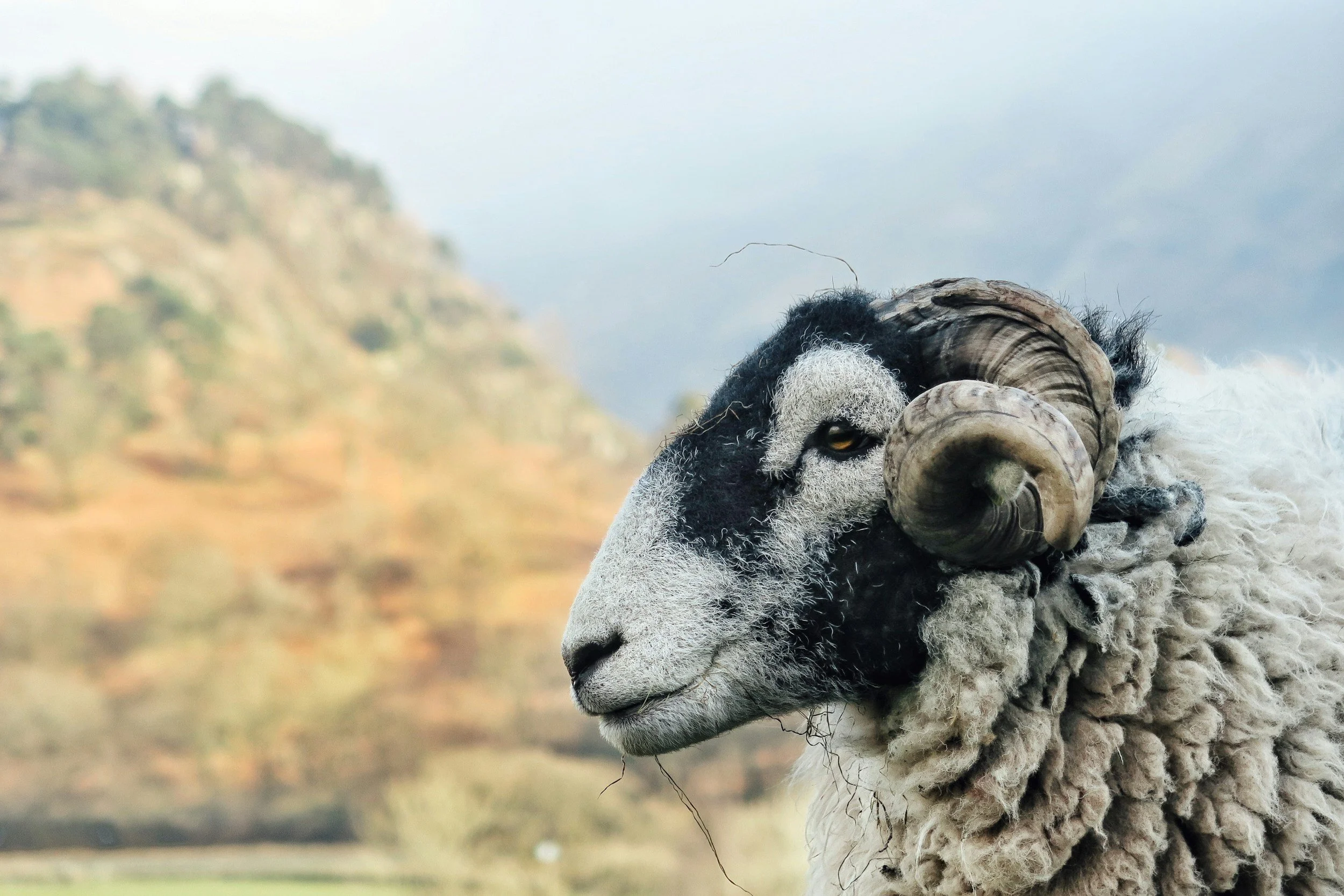How to Care for Your Ram Year-Round
Caring for your ram is a simple, yet important job—because he accounts for 50% of the genetics in your flock. The quality of your ram will influence not only the health and productivity of your lamb crop, but also the long-term future of your flock.
Ram Care Year-Round
In this post, we’ll cover how to care for your ram year-round, including how to feed, house, and handle him to keep him healthy, fertile, and ready for the job when breeding season arrives.
Keeping a ram isn’t for everyone. Some shepherds choose to rent a ram, take ewes to another farm to be bred, or keep one only for a short time. But if you’ve chosen to keep a ram in your flock year-round, these tips will help you manage him well.
Feeding Your Ram
A ram doesn’t need much in the way of special feed for most of the year. Good pasture and/or quality hay are usually sufficient to maintain his body condition. However, things change as breeding season approaches.
About 60 days before breeding season, it’s time to evaluate his condition:
Body Condition Score (BCS): Aim for 3.5–4. This is a little on the fat side, but remember—he will lose weight during breeding as he works. Click here for a full guide to scoring!
If underweight: Increase his plane of nutrition by offering better-quality hay, access to fresh pasture, or supplementing with grain.
If overweight: You don’t want him too fat, either. Adjust feed accordingly to avoid mobility or fertility issues.
Pro tip: Heat stress matters. High temperatures (90°F/32°C+) can lower fertility in rams. Keeping him in shade, with fresh water and adequate nutrition, will help maintain reproductive health.
I flush my mature ewes before and into breeding season. Once I turn my ram out with the ewes, he also gets fed the flushing ration for about four weeks. This helps him maintain condition during breeding season when eating is the last thing on his mind!
Housing Your Ram
Rams should have a secure, comfortable space that provides:
Shade and shelter from sun, wind, and extreme weather.
Sturdy fencing—rams are strong, and come breeding season, their determination can surprise you so make sure you have him housed somewhere extra sturdy during this time!
Companionship—if he’s housed away from the ewes, consider keeping a wether or another ram with him for company. Rams do better when they’re not completely isolated.
If you’re in a warm climate (think 90+ during breeding season), you might also consider shearing your ram 30–40 days before breeding season. This helps keep him cool, encourages grazing, and prevents sterility due to overheating. In cooler climates, however, shearing may not be necessary if breeding falls during cold weather.
Parasite Control
Parasite management is just as important for rams as it is for ewes. A few checkpoints:
Check FAMACHA scores regularly, especially if your ram is on pasture.
If your ram has a low body condition score, parasites may be part of the issue. Treat as needed.
Use rotational grazing and clean housing to reduce parasite loads year-round.
If you keep your ram dry lotted (not on pasture) you shouldn’t have to worry about parasites.
Checking famacha scores and or deworming (depending on your management style) is important before breeding season
Handling Tips
Rams deserve respect. Even the most gentle ram can change behavior during breeding season. Keep these handling tips in mind:
Trim feet before breeding season so he can stay mobile and active.
Never trust a ram entirely—always keep an eye on him, especially around children. Even “dog gentle” rams can turn dangerous if provoked or in rut.
Never turn your back on a ram — especially during breeding season. Always carry something with you (I like my crook) so the ram respects your space and authority.
Use halters or small pens for routine care like trimming, worming, or checking condition.
Never pet a ram on top of the head, chin scratches are a much better option!
Breeding Season
We’ll go into much more detail about breeding season in another post but here is a quick overview:
Most sheep are seasonal breeders and begin to cycle as the days get shorter. We choose to put the ram out with our ewes in mid fall - October / November. Ewes typically cycle every 17 days, so we choose to leave our ram in for two cycles or 34 days.
Pro tip: If you have more than one ram, after removing them from the ewes, keep them nearby, but in separate pens for a few days to give them a chance to get used to each other (if separated during breeding) and settle down after the breeding season before putting them back together to minimize fighting and aggression.
Shearing
Rams need to be shorn once per year. Unless you have a special fiber breed that needs shorn more often. For the sake of keeping things simple, we choose to shear our ram the same time as our ewes - in early spring before lambing.
If it is going to be below freezing out after you shear, leave your ram in an enclosed area (the barn for example) for a couple weeks to let him acclimate to the cold weather without his wool coat.
Final Thoughts
Caring for a ram year-round isn’t complicated, but it does require consistency. By paying attention to nutrition, housing, parasite control, and handling, you’ll set him up for success when breeding season comes around.
Remember: one ram can sire 30–50 ewes in a single season. The effort you put into his care ripples across your entire flock for years to come.
💡 Want an easy way to remember these care tips?
I created a seasonal Ram Care Checklist you can print and hang in your barn. It walks you through exactly what to do in spring, summer, fall, and winter to keep your ram healthy and ready for breeding.
Just enter your name and email in the form below 👇🏻
Pin for later


